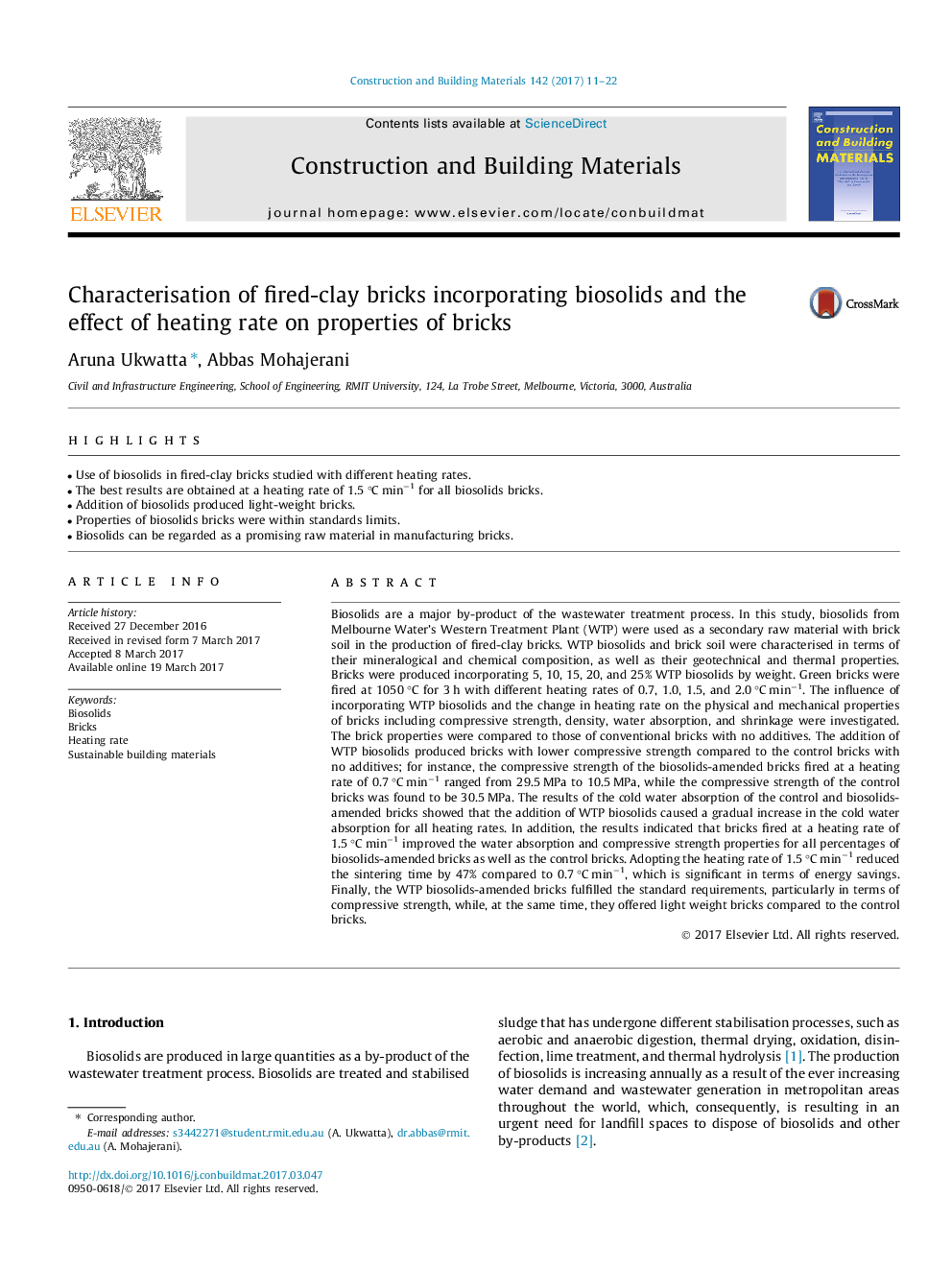| کد مقاله | کد نشریه | سال انتشار | مقاله انگلیسی | نسخه تمام متن |
|---|---|---|---|---|
| 6480653 | 1428764 | 2017 | 12 صفحه PDF | دانلود رایگان |
- Use of biosolids in fired-clay bricks studied with different heating rates.
- The best results are obtained at a heating rate of 1.5 °C minâ1 for all biosolids bricks.
- Addition of biosolids produced light-weight bricks.
- Properties of biosolids bricks were within standards limits.
- Biosolids can be regarded as a promising raw material in manufacturing bricks.
Biosolids are a major by-product of the wastewater treatment process. In this study, biosolids from Melbourne Water's Western Treatment Plant (WTP) were used as a secondary raw material with brick soil in the production of fired-clay bricks. WTP biosolids and brick soil were characterised in terms of their mineralogical and chemical composition, as well as their geotechnical and thermal properties. Bricks were produced incorporating 5, 10, 15, 20, and 25% WTP biosolids by weight. Green bricks were fired at 1050 °C for 3 h with different heating rates of 0.7, 1.0, 1.5, and 2.0 °C minâ1. The influence of incorporating WTP biosolids and the change in heating rate on the physical and mechanical properties of bricks including compressive strength, density, water absorption, and shrinkage were investigated. The brick properties were compared to those of conventional bricks with no additives. The addition of WTP biosolids produced bricks with lower compressive strength compared to the control bricks with no additives; for instance, the compressive strength of the biosolids-amended bricks fired at a heating rate of 0.7 °C minâ1 ranged from 29.5 MPa to 10.5 MPa, while the compressive strength of the control bricks was found to be 30.5 MPa. The results of the cold water absorption of the control and biosolids-amended bricks showed that the addition of WTP biosolids caused a gradual increase in the cold water absorption for all heating rates. In addition, the results indicated that bricks fired at a heating rate of 1.5 °C minâ1 improved the water absorption and compressive strength properties for all percentages of biosolids-amended bricks as well as the control bricks. Adopting the heating rate of 1.5 °C minâ1 reduced the sintering time by 47% compared to 0.7 °C minâ1, which is significant in terms of energy savings. Finally, the WTP biosolids-amended bricks fulfilled the standard requirements, particularly in terms of compressive strength, while, at the same time, they offered light weight bricks compared to the control bricks.
Journal: Construction and Building Materials - Volume 142, 1 July 2017, Pages 11-22
